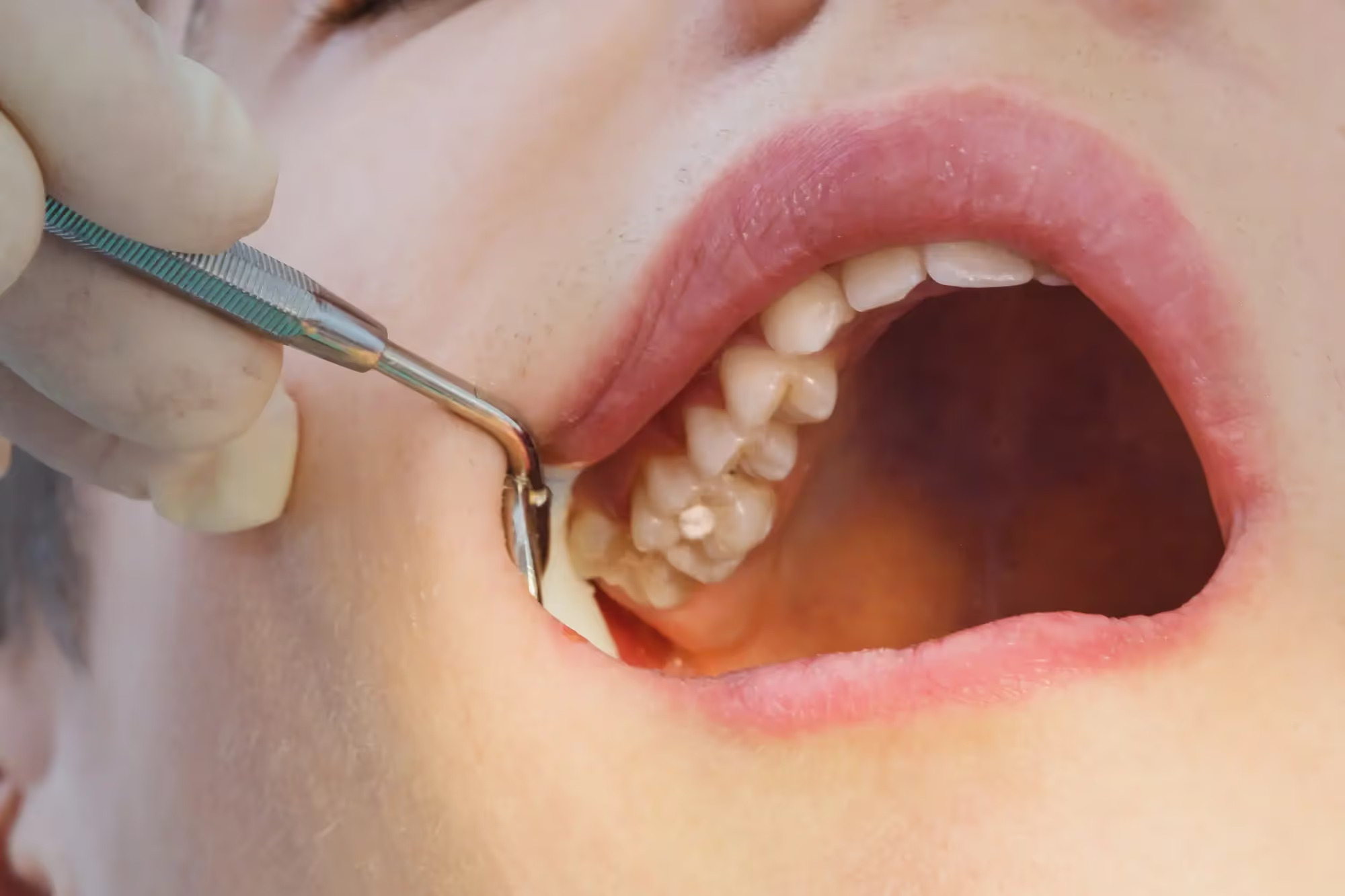What is the Difference Between Dentures and Implants?
December 14, 2024

Dentures and dental implants are both restorative treatments that replace missing teeth in the mouth and help a patient restore their smile and live a more restriction-free life.
Replacing missing teeth will restore a patient’s ability to eat various foods, speak more clearly, and feel confident in their smile. However, when you take a closer look, there are also many differences between dentures and dental implants.
These differences can help you distinguish which one is a better choice for your needs. Read on in this blog from Valor Dental to learn more.
What Are Dental Implants?
Dental implants are biocompatible titanium posts that are implanted into the jawbone. After they’re placed, osseointegration occurs in 3 to 6 months, which is when the implant fuses with the jawbone, forming an artificial tooth root.
This tooth root prevents the implants from moving and preserves the existing jawbone by providing stimulation to the jawbone when you chew. After osseointegration, we reopen your gums to attach the abutment which connects the implant to the restoration.
Traditional single-tooth implants attach to a dental crown but you can replace an entire arch of teeth with a denture or dental bridge that clips onto a series of implants.
What Are Dentures?
Dentures come in two different forms depending on the severity of your tooth loss – full and partial. Partial dentures fill in the gap in your smile and prevent teeth from shifting when you have a few missing teeth.
However, if you have extensive tooth loss, a full denture is recommended. This will require extracting the remaining teeth in the arch. Your dentures are fabricated from impressions that are taken of your mouth and they are held in by suction for full dentures and clipped onto the surrounding teeth with a metal clasp for partial dentures.
Patients who are missing most of their teeth can suffer from speech impediments, reduced support to facial muscles, and difficulty eating hard or chewy foods. Dentures can restore a patient’s ability to live a full life.
The Difference Between Dentures and Dental Implants
Dentures are affordable, suitable for patients with a history of gum disease and minimal bone support, less invasive, and take less time to complete, including healing. However, they need to be replaced much sooner due to their short lifespan and the changes in your facial structure due to bone loss.
Dentures can’t prevent bone loss and are not as stable as implants. They are more prone to moving around when you speak and eat. You also need to remember to remove them and soak them at night. They are more high maintenance in terms of cleaning and care.
Implants last for 25 years to a lifetime, prevent bone loss, and are low maintenance. You can eat whatever you want with implants without any restrictions or fear of teeth moving or falling out. An implant looks and feels just like a natural tooth and is made out of the most durable materials.
However, not everyone is a good candidate for implants because you need enough healthy bone support to anchor the implants. Patients with extensive bone loss will not be eligible for implants without additional surgeries like bone grafts.
However, this will add to the overall cost and length of treatment which is already much more costly and time-consuming than dentures. The implant process is also much more invasive, requiring multiple oral surgeries.
Which Tooth Replacement is Right For Me?
Taking all of these factors into consideration, dentures are a great cheap, fast, and accessible option to replace missing teeth and restore tooth functionality for patients who are dealing with speech and eating difficulties.
If you want a tooth replacement that will last for the rest of your life, prevent the consequences of bone loss, and be as stable as possible, then dental implants are the best option.
There are tradeoffs for both procedures, but implants are higher quality and long-lasting for a higher price and longer process. Dentures can greatly improve a patient’s quality of life but require more upkeep and continual replacement as well as some more lifestyle inconveniences.
Schedule Your Tooth Replacement Consultation Today!
The best way to find out if dentures or dental implants are better suited for your replacement needs, aesthetic goals, and long-term priorities is to contact us at Valor Dental to book a restorative consultation with Dr. Kiene or Dr. Merkley.
Our dentists in Justin will assess the severity of your tooth loss, discuss your goals, take x-rays to determine how much bone support you have, and make a recommendation based on your oral health and personal preferences.




